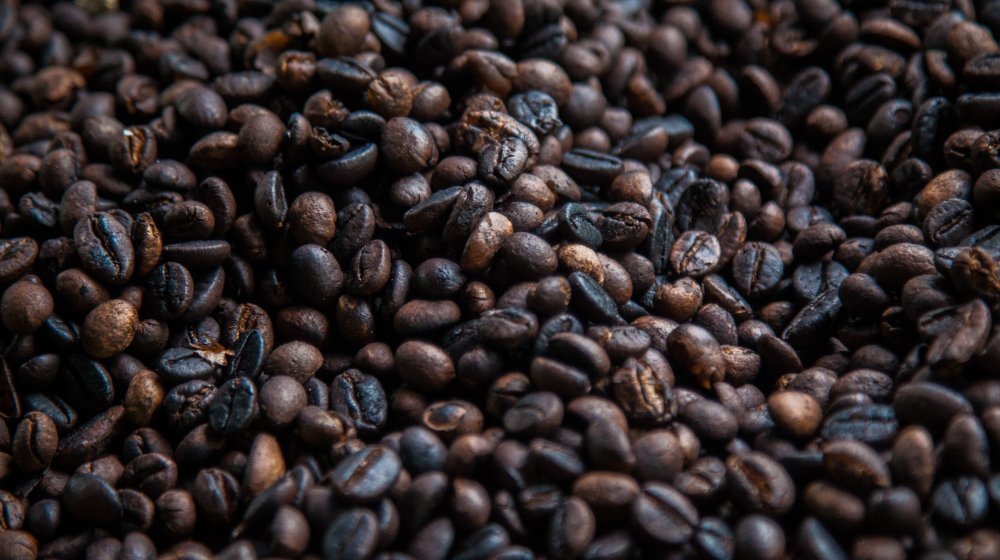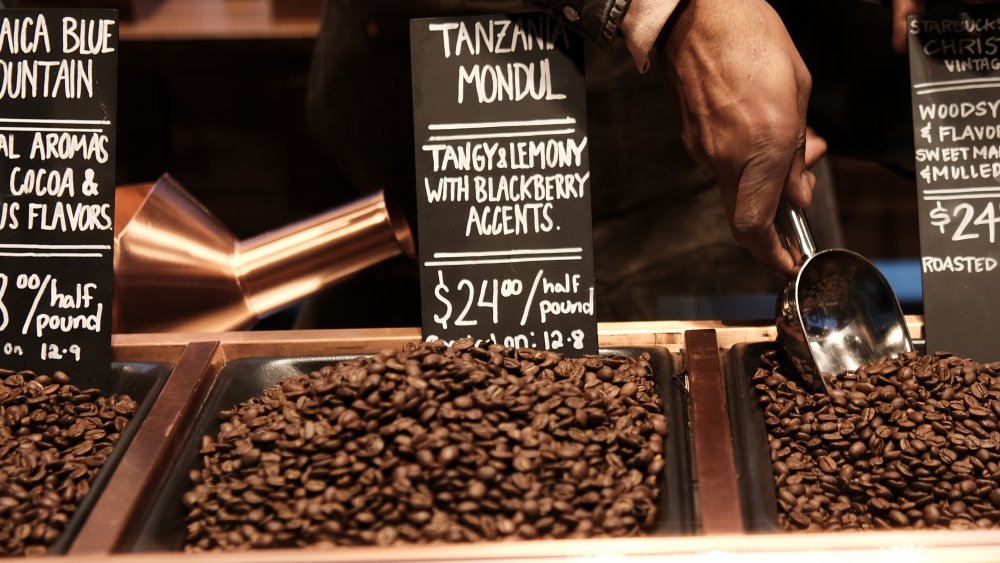You Should Never Put Coffee Beans In The Freezer. Here's Why
So there was an amazing sale on coffee beans at your grocery store, or maybe your favorite roaster is going out of business and you stocked up. Now you have months worth of fresh coffee beans and are wondering, "Wait, can these go bad?" Unfortunately for you — the answer is yes.
According to coffee expert Gail over at Seattle Coffee Gear, how long the beans last on the shelf is a bit complicated. While most beans don't have an expiration date, they do usually come labeled with the date they were roasted on. This date is important, as experts claim the beans are at their best and the coffee they produce will be freshest closer to the roast date.
As the beans age and oxidize, they begin to become stale. The staff at Seattle Coffee Gear start pulling old beans off the shelf between two to four weeks after the roast date, depending on each individual company's guidelines. They suggest sniffing your coffee to see if it is stale, saying that if you can't smell the coffee, you probably won't be able to taste it either.
Home Grounds asserts the four worst things for coffee beans are light, air, moisture, and heat. That being said, it seems like a cold, dark freezer would naturally be the best spot to store them, but this would be a mistake.
Why the freezer is so bad for coffee beans
Java Presse reports the reason coffee doesn't hold up well to freezing are the humidity levels present in freezers. Coffee beans naturally have very little moisture, so they are primed to soak it up from the environment. This can easily lead to funky smells and flavors from nearby foods. Humidity can also cause the beans to decay more quickly, since the chemical reactions that make coffee so good are kick-started by increased moisture levels. The National Coffee Association agrees, and adds that most home storage containers are not truly airtight — this is why food gets freezer burn even when you take precautions against it.
If you absolutely must freeze your beans, Real Simple claims the best way to do so is to divide them up into individual portions and freeze in airtight bags for up to a month. When you are ready to use the coffee, thaw the beans at room temperature and use them within two weeks. Similarly, Bon Appetit suggests if the coffee beans came in sealed foil bags with one-way valves that let gas out, but stop air from coming in, you should freeze them in that. If the beans came in a paper bag, they recommend doing as Real Simple suggests and putting the beans in airtight plastic containers. Food52 cautions you to avoid allowing the temperature of your coffee beans to fluctuate once you have frozen them. This can create moisture on the beans, which ages the coffee.

